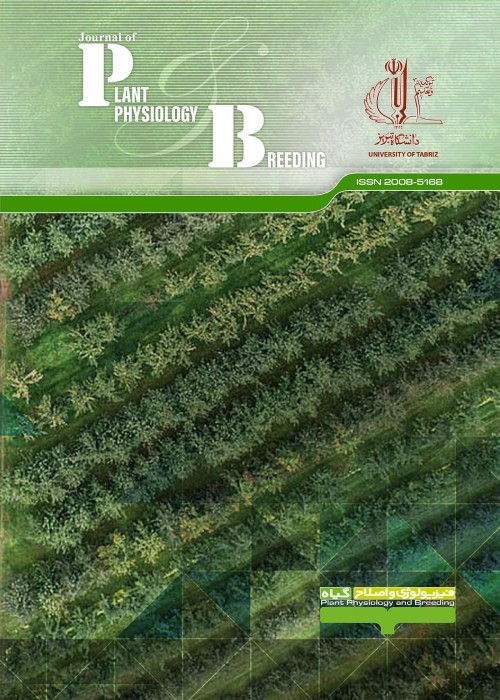Determination of Aluminum Stress Tolerance Threshold During Seed Germination of Wheat
Author(s):
Abstract:
Environmental stresses are the most important factors that reduce plant growth in stages of development. The presence of aluminum in acidic soils as an environmental stress has an impact on different parts of the plant and reduces root growth, water absorption and nutrients and increases susceptibility to drought. In order to evaluate the effect of aluminum stress levels on wheat at germination stage, an experiment was conducted as factorial based on completely randomized design with three replications. The root and shoot characters of four wheat cultivars (Arta, Gascozen, Moghan3, Mihan) at seedling stage were studied at eight stress levels (control, 0.5, 1, 1.5, 2, 2.5, 5 and 10 mM Al
3
). The root and shoot fresh weight, root and shoot length, root volume and area, root number and Root/Shoot ratio were measured. Results showed that stress level had significant effects on all studied traits. Also, wheat cultivars were significantly different for number, volume, weight and area of root and also shoot length. Interaction between cultivars and stress levels was significant for root number. The Mogha3 variety had higher root number at 2.5 mM Al
3
stress level. In all of varieties, the root number increased by increasing of Al
3
concentration. Comparison of means showed that Al
3
stress caused significant reduction in all studied traits except root number. The Moghan3 variety had higher means for studied traits as compare with other varieties.
3
). The root and shoot fresh weight, root and shoot length, root volume and area, root number and Root/Shoot ratio were measured. Results showed that stress level had significant effects on all studied traits. Also, wheat cultivars were significantly different for number, volume, weight and area of root and also shoot length. Interaction between cultivars and stress levels was significant for root number. The Mogha3 variety had higher root number at 2.5 mM Al
3
stress level. In all of varieties, the root number increased by increasing of Al
3
concentration. Comparison of means showed that Al
3
stress caused significant reduction in all studied traits except root number. The Moghan3 variety had higher means for studied traits as compare with other varieties.
Keywords:
Aluminum , Germination , stress , Tolerance , Wheat
Language:
English
Published:
Journal of Plant Physiology and Breeding, Volume:6 Issue: 2, Summer-Autumn 2016
Pages:
19 to 30
https://magiran.com/p1707364


